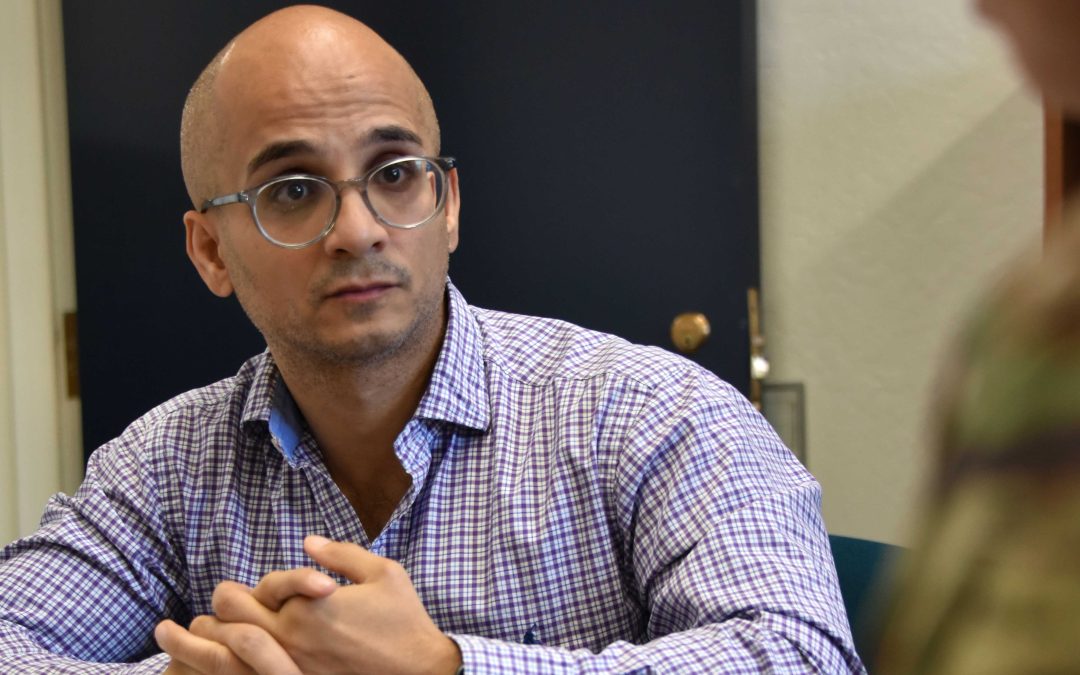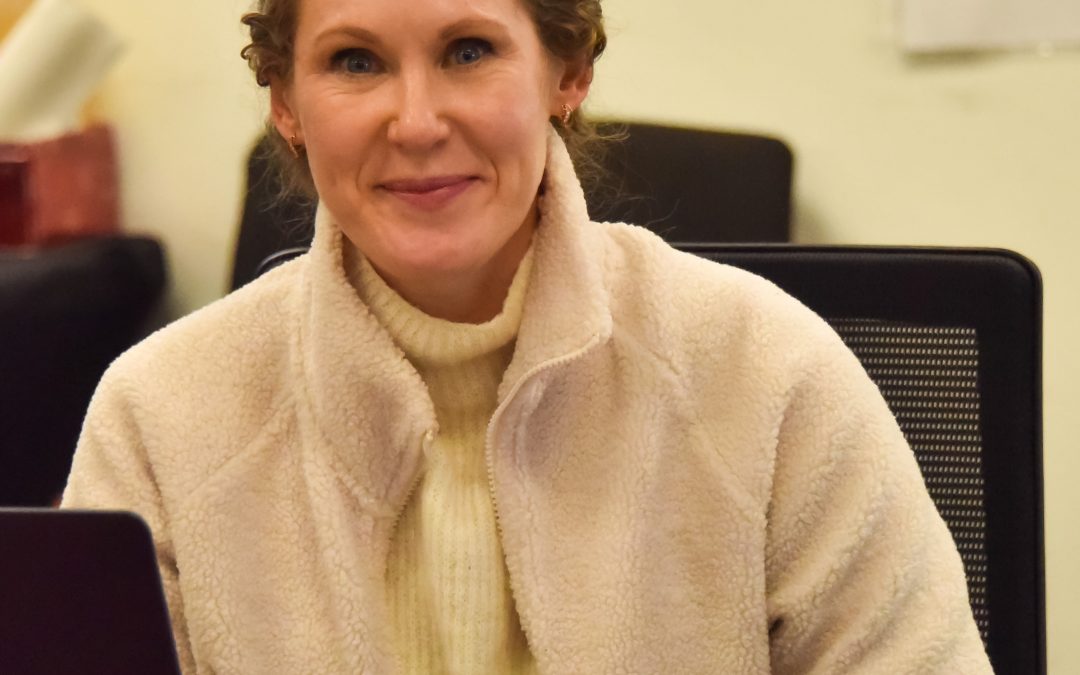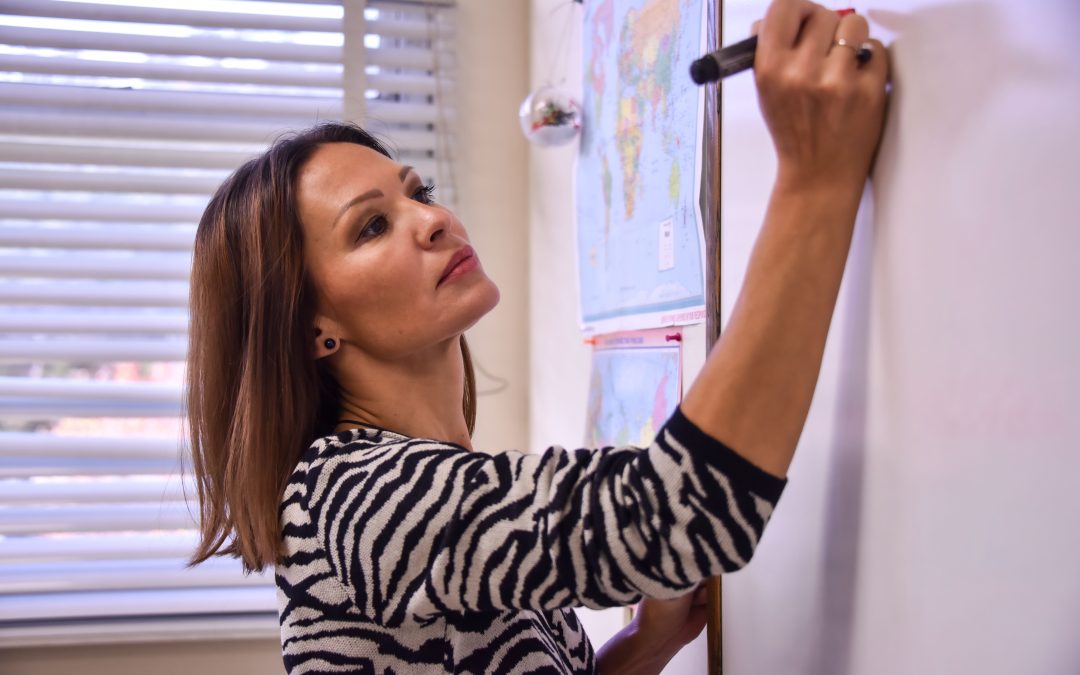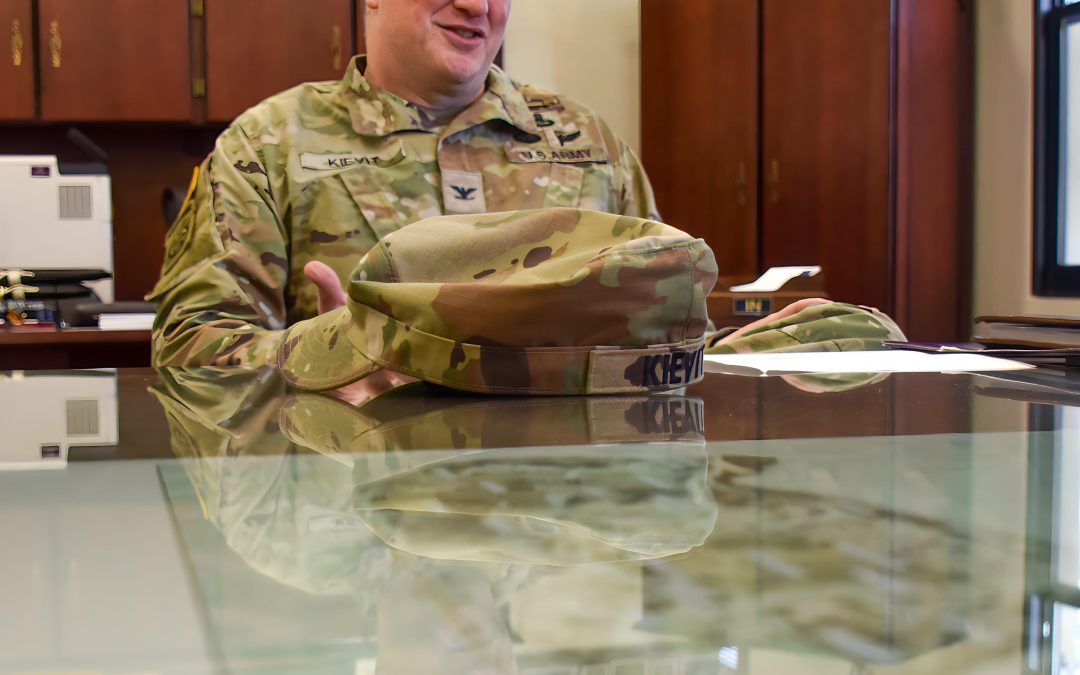SAN FRANCISCO — Service members studying Mandarin Chinese at the Defense Language Institute Foreign Language Center, Presidio of Monterey, made the trek north to test their skills and compete for honors at the 39th Annual Mandarin Speech Contest in San Francisco April 26.
The day-long competition, the largest of its kind in the United States, is sponsored by the Chinese Language Teachers Association of California, or CLTAC, and was held this year at the Lowell High School auditorium. The purpose of the speech contest is to foster good language skills in Mandarin.
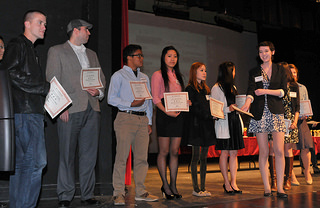 The CLTAC, established in 1962, is a nonpolitical, nonprofit educational and professional organization that seeks to promote the study, teaching and research of the Chinese language and culture and provides a platform for Chinese instructors to share and exchange teaching experience, ideas and information. The annual speech contest rewards excellence in speaking and comprehension.
The CLTAC, established in 1962, is a nonpolitical, nonprofit educational and professional organization that seeks to promote the study, teaching and research of the Chinese language and culture and provides a platform for Chinese instructors to share and exchange teaching experience, ideas and information. The annual speech contest rewards excellence in speaking and comprehension.
Although it is one of the six official languages of the United Nations, and spoken by more than 1.3 billion people worldwide, Mandarin is considered exceptionally hard to learn for western language scholars, in part due to the fact that few speakers of Mandarin emigrated from China until the late 20th century, and its spoken complexity, which relies on tone to determine a word’s meaning in a sentence.
Competitors were divided by age group and required to be students enrolled in a Mandarin Chinese program during the 2013-2014 academic year. Also, as a prerequisite, all contestants passed through a rigorous preliminary contest in their own school in order to compete.
The competition required students to deliver a speech, which they wrote, memorized and delivered on their own, on any appropriate topic (such as travel, culture, art, literature or other conversational subject) the student chose to speak on, commensurate with his or her level of training.
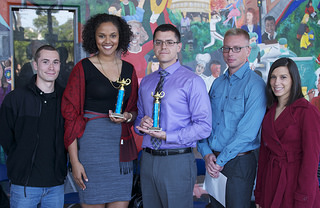 Speeches ranged from three to five minutes depending on the category the student competed in, but emphasis in all categories was placed on accuracy in pronunciation and tones, fluency, delivery, cadence, as well as content.
Speeches ranged from three to five minutes depending on the category the student competed in, but emphasis in all categories was placed on accuracy in pronunciation and tones, fluency, delivery, cadence, as well as content.
Judging of the speeches was conducted by a panel of CLTAC-recognized Mandarin scholars and instructors throughout California. Each Chinese class was allowed to send only their five best students to compete in a particular category. Competitors were divided into divisions corresponding with their years of study, and then placed to compete in four separate sub-categories: speakers who learn Mandarin who have had no previous contact with the language; native speakers of Mandarin dialects (including Cantonese); speakers with Mandarin language speaking background (either from a parent of other family member); and speakers who participate in total Mandarin language immersion programs.
This year, 35 students from the DLIFLC made the trip to San Francisco to compete, accompanied by fellow students, friends and more than 60 DLIFLC faculty members who attended to encourage and cheer them on. According to the official CLTAC record, 15 DLIFLC students won awards, five of whom took first-place honors in their categories.
“Entering DLI students in the competition increases their motivation for learning, develops vocabulary and improves pronunciation,” said Professor Patrick Lin, a lead faculty member at DLIFLC Asian School I. Lin, now an American citizen, was born in the Chinese city of Zhongshan, in the Guangdong province, where he taught at the university there prior to coming to America. He began teaching Mandarin at the DLIFLC in 1991.
“Besides raising confidence for speaking examinations, the event is a driving force, a milestone for Mandarin language students to pass on their way to becoming expert Mandarin speakers,” he said.
“The students compete here at a very high level — and the categories for older students are unforgiving and very tough; very demanding mentally,” said Lin. “And competing, let alone winning, is a life-time experience and honor for a Mandarin language scholar.”
Lin said that DLIFLC students traditionally dominate the competition in their categories. “Our students are very serious competitors,” he said. “They have the discipline to prepare and shape their skills over time, and, most importantly, they have the fellowship and support of their peers and of the Asian School One faculty while they learn.”
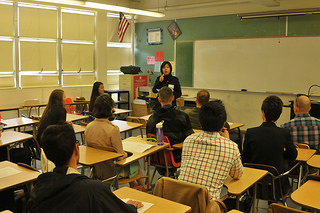 The 229th Military Intelligence Battalion’s Capt. Caleb Campbell, a DLI student competing in this year’s contest said that two weeks before the competition he thought twice about attending the competition. “I enjoy public speaking, so that part didn’t bother me at all, but the competition is something that students do on top of their regular DLI studies, which is in itself exhausting and intense.”
The 229th Military Intelligence Battalion’s Capt. Caleb Campbell, a DLI student competing in this year’s contest said that two weeks before the competition he thought twice about attending the competition. “I enjoy public speaking, so that part didn’t bother me at all, but the competition is something that students do on top of their regular DLI studies, which is in itself exhausting and intense.”
Campbell was competing in the category that included speakers of Mandarin who have had no previous contact with the language. His three-minute subject was a commentary on a traditional Chinese story that was laced with symbolism and explores a philosophical question about life and its confrontations. The story uses a metaphor of a man literally being placed between two tigers and staying calm while figuring out how to unravel his predicament.
“I spent hours and hours listening to tapes to get the pronunciation alone right,” he said. “In the lead up to the contest I was always, always tired.” Campbell paused to think, before continuing. “But the contest also gave me a focus; it was a challenge to overcome as a Mandarin linguist. I am glad it’s over; I hope I at least place — or win honorable mention.”
Following the actual speeches, Campbell joined his DLIFLC colleagues to watch the vibrant traditional Chinese cultural folk dancers and musicians, many of them drawn from the San Francisco Chinese community. During this time, CLTAC judges tallied the scores, debated, and, first, ranked the competitors by category, and, then, decided which to award first, second, third place and fourth place (honorable mention).
Hours later, when the speech contest winners were called up to the stage to receive their trophies, Campbell was visibly surprised to hear his name announced by CLTAC President and University of California-Davis Professor Chengzhi Chu: “In category two, from the Defense Language Institute in Monterey, Caleb Campbell, first place.”
Story and Photo Credits
Story and Photos by
Michael Beaton, Public Affairs Specialist

